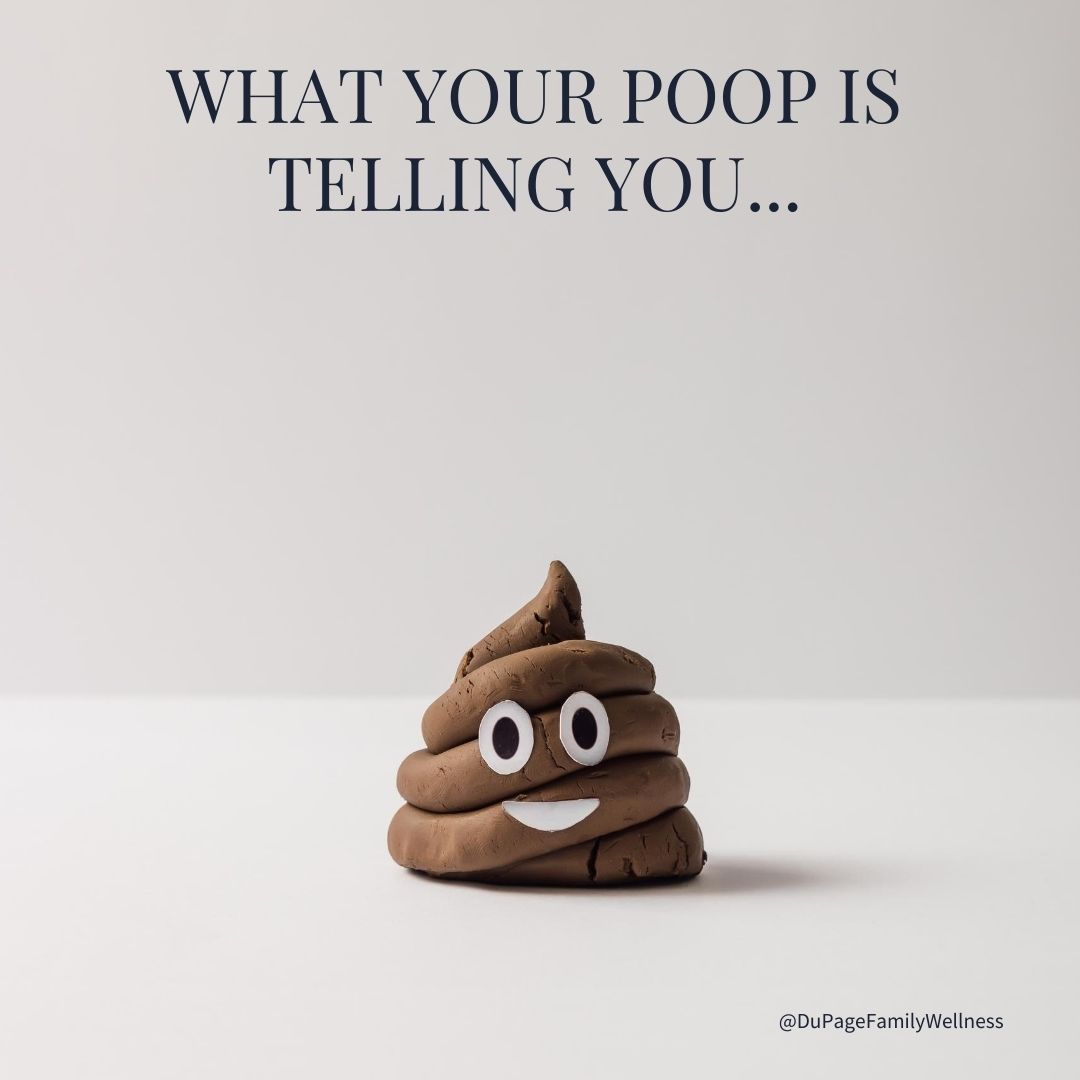 Our digestive health is crucial to the overall health of our body! If we want to know how our digestion is going, all we have to do is listen to our body.
Our digestive health is crucial to the overall health of our body! If we want to know how our digestion is going, all we have to do is listen to our body.
When our digestion is really bad, we will have all kinds of unpleasant symptoms. Stomach upset, gas, constipation, or diarrhea are symptoms that things are off. But even without these obvious signs, your digestion might be suffering.
Paying attention to our poop is a great way to tell how our digestion is doing. However, since we don’t often talk about our poop we may not know if what we are experiencing is a sign of health. It is important to shake the awkwardness of the conversation, so that we can listen to the messages our body is sending us.
Our gut health has such a great impact on our overall health, so we need to pay attention to what our poop is telling us!
The Basics
When we talk about poop, we will be looking at the form, frequency, color, and smell. Each of these aspects can give us insight into our digestive health.
When we consider the form of our poop, the Bristol Stool Chart is an extremely helpful tool. This chart was developed by Stephen Lewis and Ken Heaton at the Bristol Royal Infirmary. It is a diagnostic tool which classifies human feces into seven forms.
Take a moment to look at the chart and consider what you tend to experience!
Cabot Health, Bristol Stool Chart / CC BY-SA (https://creativecommons.org/licenses/by-sa/3.0)
An Ideal Poop
Ideally, we will have smooth soft poop that doesn’t fall apart when the toilet is flushed (a four on the Bristol Chart). The poop should be a chocolatey brown color like that of a Hersey bar. Bowel movements should not have a very strong odor or be difficult to wipe.
Since bowel movements are one of the body’s ways of eliminating toxins, it is important to have one to three bowel movements consistently each day. It should not hurt to poop, and you shouldn’t have to strain.
Trouble Signs
- Form - Having poop that is too soft could mean that you are simply not eating enough fiber, while poop that is too hard it may indicate that you need to drink more water.
- Color - Poop that is very dark could indicate bleeding in the GI tract, while poop that is too light may indicate malabsorption.
- Frequency - Less than one bowel movement a day is a sign of constipation, more than three bowel movements indicate diarrhea. These are important indicators of gut health and should be discussed with your doctor.
- Smell - Poop doesn’t smell lovely, but it shouldn’t smell terrible either! Terrible smelling excrement could be a sign of a heavy toxin burden.
It may be important to work with your doctor if you are experiencing any of these trouble signs. You will want to identify the root cause because there are many other things that it could indicate as well (bacteria, parasites, thyroid trouble, malabsorption issues, etc.)
Our bodies are amazing! They send us so many signals to let us know how they are doing and what they need. We just need to learn how to listen to the messages they are sending.
If your digestion is off and you would like some help figuring out why, please feel free to reach out to me. Sometimes we come up with an easy solution right away, and other times it takes a little more digging. Either way, your body will thank you for listening to what it’s been saying!
Dr. Jamie

